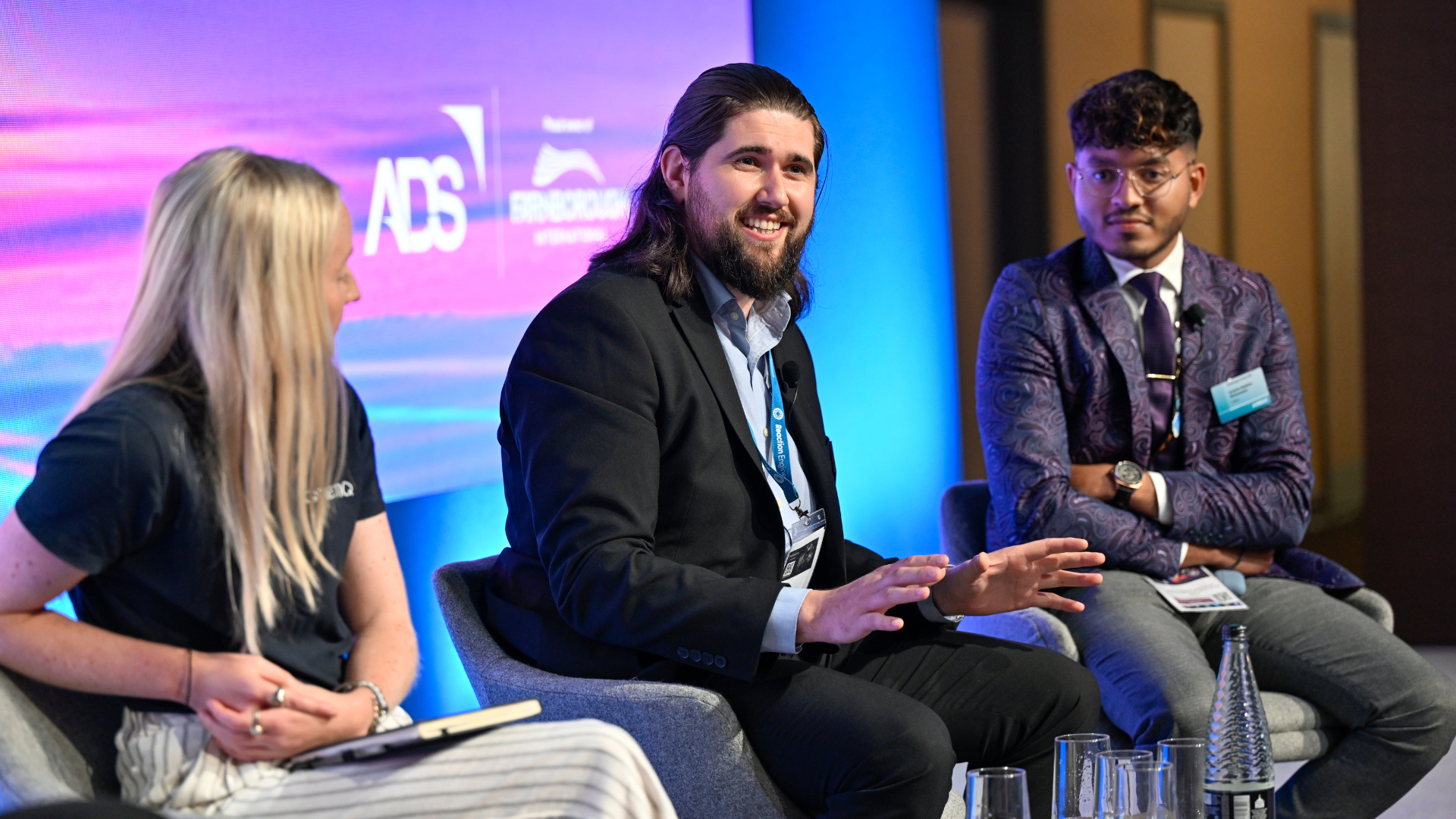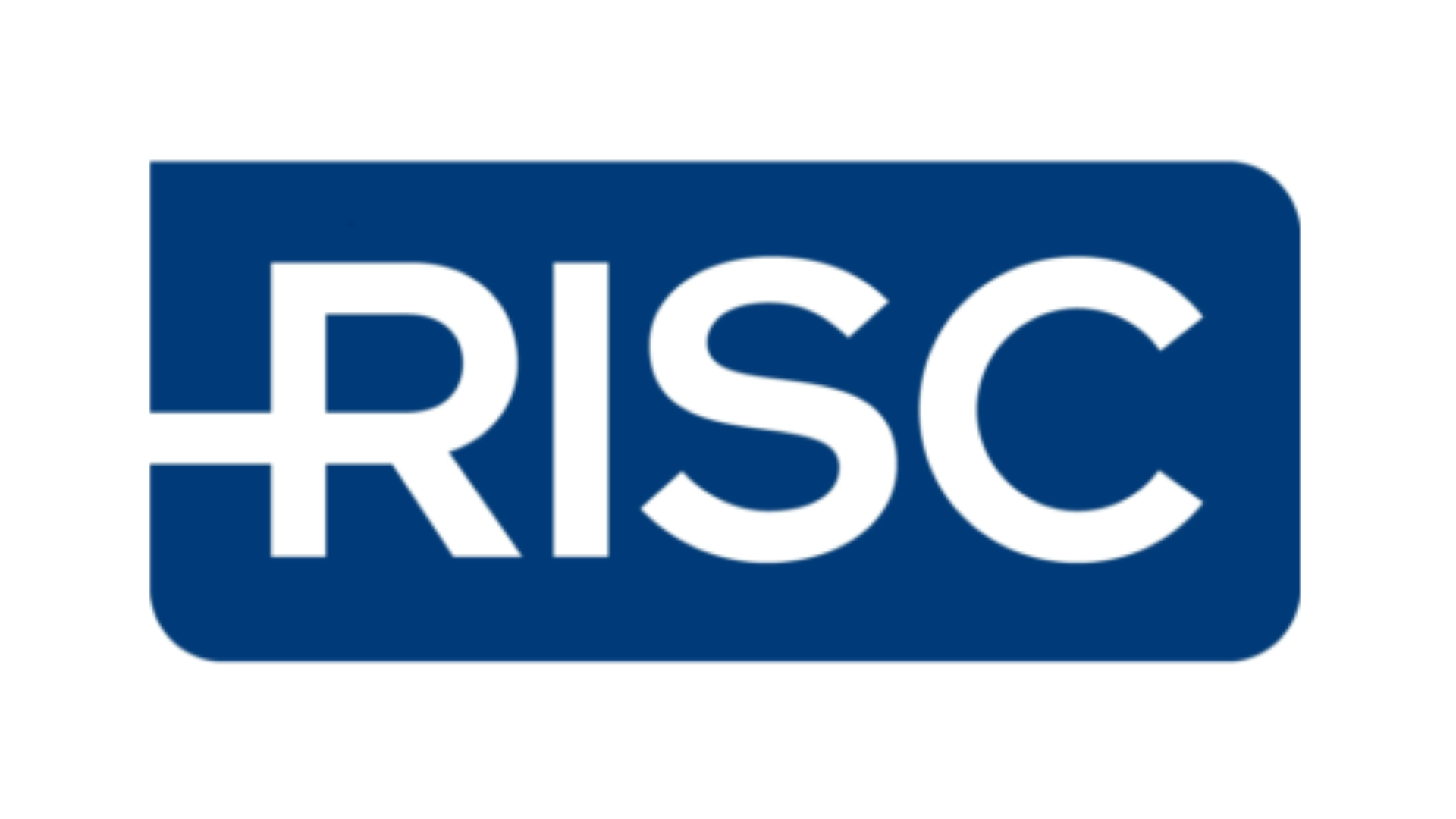
The Friday of Farnborough International Airshow 2024 was ‘Pioneers of Tomorrow’ day, when an incredible 27,000 visitors came through the gates to enjoy the aerospace activities, with many there to learn about a future career in our industry.
In the afternoon, we were delighted to host a panel discussion on the main stage. It was delivered by the ADS New Professionals Forum (NPF), a peer-to-peer networking and support group for those new to our sectors. On the panel were:
- Matthew Swift, Product Lead for Hydrogen HX at Reaction Engines, Applied Technologies Division
- Billie Sequeira, Sustainability Executive at BAE Systems
- Ibby Badsha Mohammed, Landing Gear Graduate Engineer at Airbus
- Sophie Connolly, ESG Advisor at QinetiQ
Together they explored the future of careers in the aerospace sector as the industry pushes towards Net Zero by 2050 and what that means for those in their early careers now and others wanting to move into the sector. The conversation offered valuable insights into what the path ahead might look like and how everyone can get involved in shaping a sustainable future.
For those who missed this fascinating panel discussion, Matt Swift explains more below:
Young engineers entering the aerospace industry today are joining it during a period of, not evolution, but revolution unseen since the advent of the Jet Age. With the introduction of truly sustainable flight (i.e. the application of hydrogen and electrification to powertrain) the industry is going to go through wholesale upheaval to meet these new challenges and everything from flight operations to ground support equipment, refuelling to certification is going to need a ground-up rethink if electrified and hydrogen-powered flight is ever to take off.
It’s also going to take a lot of engineering talent to get us there. That means working with academia to ensure education is aligned with future skills requirements. The AGP’s work in futurescoping is a fantastic example of collaborating towards this goal. But it’s also for industry to be open minded about attracting new talent via unconventional paths as this will bring new perspectives from other sectors that will prove critical to solving our sector’s challenges.
Developing knowledge in sustainable aerospace
Although the current common routes into engineering remain as important as they have always been, over the last few decades the traditional skillset of an aerospace engineer has been finely honed to deliver best-in-class knowledge for the current state-of-the-art technology.
In addition, we are entering fresh design spaces that require skills that, until recently, have not existed at volume within the sector. Electrification is driving a greater need for high voltage systems experience, a cornerstone of the EV automotive market. Hydrogen storage pulls on the incredibly limited pool of cryogenics experts as well as a gas handling skillset that is most commonly present in the Oil and Gas sector. As a result of this, roles will emerge over the next decade that either simply do not currently exist, or at least will change considerably, providing fresh opportunity to engineers who pursue other sectors early on.
For those wanting to transfer into aerospace, I recommend pursuing Continuous Professional Development (CPD). Deployed through flexible short courses within an existing framework, and usually provided by those closest to the subject matter, it will enable engineers to pivot and adapt faster.
Additionally, attending events like Farnborough International Airshow, RIAT, Sustainable Skies and initiatives with Innovate UK can help expand knowledge and provide access to people in industry who can potentially support your next move.
And finally… never stop learning, or aspiring to learn. As engineers, it is the root of success that we push boundaries and improve the world around us as a result. Cliché? Absolutely. But no less true because of it.
Interested in finding out more?
Here are some great places to start looking to keep up to date with courses and industry developments in the field of sustainable aviation.
General:
- The Aerospace Growth Partnership (AGP)
- The Aerospace Technology Institute (ATI)
- The Hydrogen Capability Network (HCN – part of the ATI)
- Electrification Skills Network (ESN)
- The Electric Revolution Skills Hub (ERS)
Hydrogen:
- HCN Network Map – A dedicated list of training courses in the UK, both in person and digital
- NCC Hydrogen Awareness Modules – A series of short form, online, self-paced introductory modules
- Cranfield University Hydrogen Fundamentals and Materials – A 3-day CPD short course covering the basis of hydrogen knowledge and material interaction
- Cranfield University H2 for Civil Aviation – A 5-day CPD short course covering the application of hydrogen in Civil Aviation
- Hydrogen: The Fundamentals – A 2-day course provided by HSE, delivered remotely
Electrification:
- ESN Forum – A 2 hour online forum, set to cover a wide array of topics such as Electrification in Aerospace, Skills delivery community and a ESN Framework Update
- ERS Hub Directory – A comprehensive list of available courses around the U.K.
Sustainable Aviation (General):
- Cranfield University – A centre of excellence on the topic of Sustainable Aviation, I highly recommend a deep dive into their offerings as well as following them on social media.





